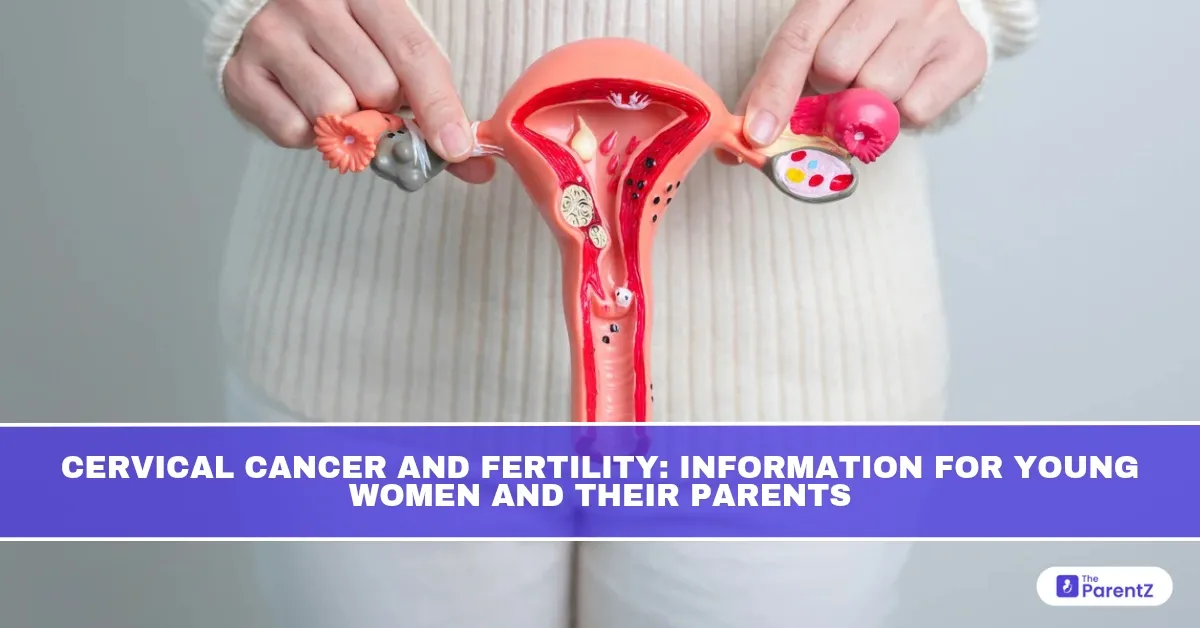When I first met a 26-year-old patient, let's call her Kavita, she came in for what she thought was a routine check-up. What followed was unexpected: a diagnosis of early-stage cervical cancer. But what worried her more than the word "cancer" was another question she asked tearfully: "Will I still be able to have children?"
For many young women, a cervical cancer diagnosis not only raises concerns about health and survival but also deeply personal fears about fertility, family planning, and the future.
What Is Cervical Cancer?
Cervical cancer is a cancer that begins in the cervix, the lower part of the uterus (womb) that connects to the vagina. It usually develops slowly over time and is most commonly caused by a long-term infection with high-risk types of Human Papillomavirus (HPV), a virus transmitted through sexual contact.
While it is more common in women aged 35-44, younger women, especially those in their 20s, can also be diagnosed, often during routine pelvic exams or Pap smears.
How Cervical Cancer Can Affect Fertility
Whether or not cervical cancer affects fertility depends on several factors, including:
- The stage of cancer at diagnosis
- The type and location of the tumor
- The treatment options chosen
- Whether fertility-sparing treatments are possible
Here’s how fertility might be affected:
1. Surgical Treatment
- Cone biopsy or LEEP (Loop Electrosurgical Excision Procedure) can remove abnormal tissue while preserving the uterus and fertility in early-stage cases.
- Trachelectomy (removal of the cervix but not the uterus) is another fertility-sparing surgery for early-stage cancer. Women can still carry a pregnancy with close monitoring.
- Hysterectomy (removal of the uterus) is typically used in more advanced cases and permanently ends fertility.
2. Radiation Therapy
Pelvic radiation can damage the ovaries and uterus. It often causes infertility and early menopause, especially when combined with chemotherapy.
3. Chemotherapy
Some drugs used in cervical cancer treatment can harm the ovaries, reducing fertility or causing early menopause.
Fertility Preservation Options
If you are diagnosed with cervical cancer and wish to have children in the future, talk to both your oncologist and a fertility specialist before starting treatment. Options may include:
Egg or Embryo Freezing
- A common and effective option where eggs are harvested and frozen unfertilised or fertilised with sperm (embryos).
Ovarian Tissue Freezing
- A newer method, especially helpful for younger girls or when cancer treatment must begin urgently.
Ovarian Transposition (Oophoropexy)
- A surgical procedure that moves the ovaries out of the path of radiation.
Surrogacy or Donor Eggs
- These are options for women who cannot carry a pregnancy after treatment.
Emotional and Psychological Considerations
Fertility is more than a physical function—it’s closely tied to identity, hope, and life goals. A cancer diagnosis at a young age is overwhelming, and the added fear of losing fertility can be devastating. Young women often experience:
- Anxiety and depression
- Fear of feeling "incomplete" or "less feminine"
- Worries about relationships and future motherhood
This is why psychological support—through counseling, support groups, or talking openly with family, is essential.
How Parents and Families Can Help
For parents, this journey can be emotionally complex. Balancing your protective instincts with the patient’s independence is key. Here’s how you can help:
- Listen without judgment
- Attend appointments when invited
- Encourage discussions about fertility preservation
- Support her autonomy in making informed choices
Prevention and Early Detection
The best way to avoid the complications of cervical cancer, including infertility, is through prevention and early detection:
- HPV vaccination for preteens and teens (both girls and boys)
- Regular Pap tests and HPV screening
- Safe sexual practices and smoking cessation
Final Words
A cervical cancer diagnosis can feel like a detour from the life a young woman imagined—but it’s not the end of the road. With early diagnosis, evolving fertility-sparing treatments, and the right guidance, many women go on to live healthy, fulfilling lives—including becoming mothers.
To every young woman facing this diagnosis and every parent walking beside her: there is hope, there are choices, and you are not alone.





Be the first one to comment on this story.